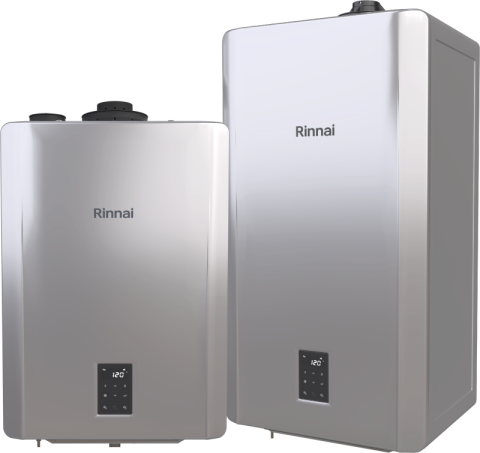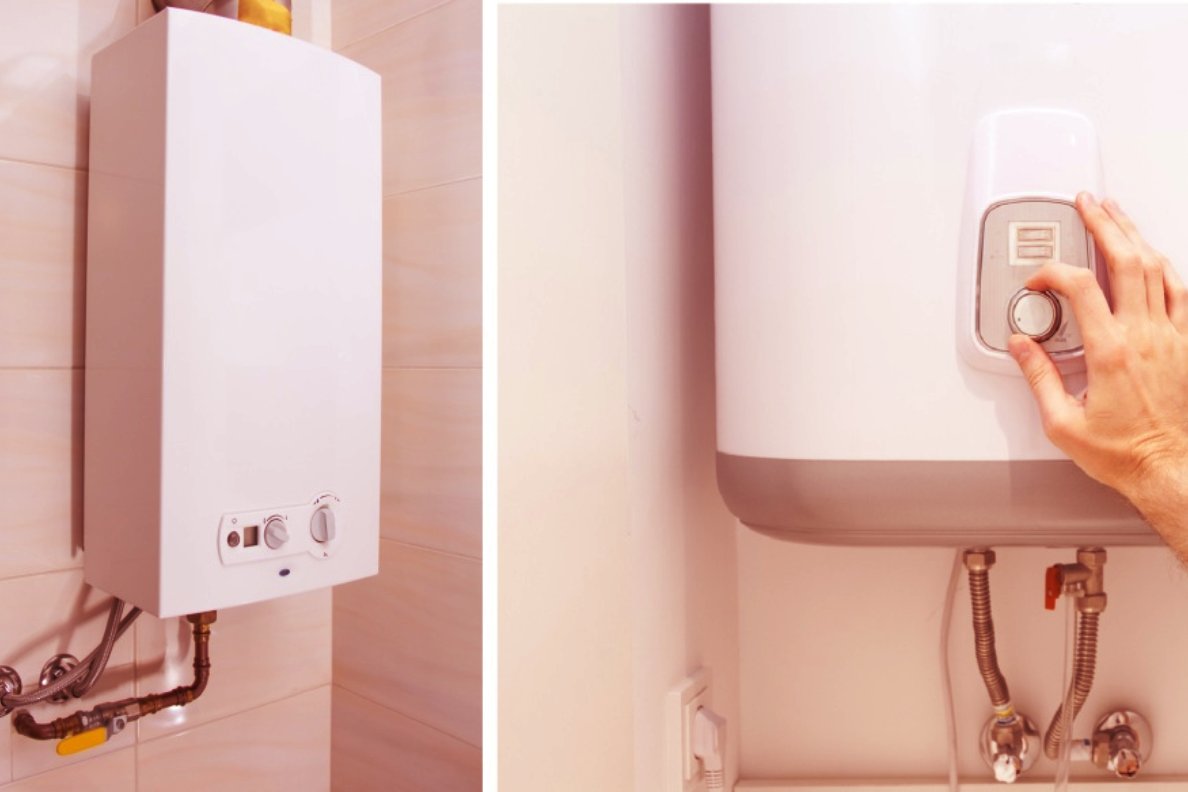Gaining More Value: The Upsides Of On-Demand Water Heaters
Gaining More Value: The Upsides Of On-Demand Water Heaters
Blog Article
What're your opinions about Why You Should Consider a Tankless Water Heater?

In a world where ease and performance preponderate, it's not a surprise that home owners are regularly looking for smarter methods to manage their home's energy intake and convenience. One development that has gradually gained popularity is the tankless hot water heater. But exactly what makes these systems attract attention from the traditional tank-based designs a lot of us grew up with? Let's dive in and discover the benefits of tankless hot water heater, aiding you decide if it's time to make the button in your house.
Intro
Image this: you enter the shower after a lengthy day, expecting a soothing cascade of hot water, just to be welcomed by icy beads because the last person utilized all of it up. Audio acquainted? Traditional water heaters store a fixed quantity of warm water, meaning you go to the grace of that tank's supply. Tankless systems, on the other hand, warmth water on demand. Say goodbye to running out mid-shower, say goodbye to wrestling with routines simply to make certain warm water is readily available.
Recognizing Tankless Hot Water Heater
What Are Tankless Hot Water Heater?
Tankless water heaters, occasionally referred to as on-demand or instant hot water heater, give warm water just as it's needed. As opposed to storing gallons of pre-heated water, these units kick right into action the minute you activate the faucet. Water goes through a warm exchanger, heating up in real-time, implying you get an undisturbed flow of hot water without the requirement for a big tank resting lazily by.
Exactly how Do They Differ from Standard Equipments?
Typical heaters hold a tank of warm water, using power to maintain that container at a consistent temperature level. Tankless systems eliminate the standing supply, lowering lost power and the large impact of a large cyndrical tube. Basically, you're upgrading from a "stockpile" state of mind to a "made-to-order" method.
Typical Sorts Of Tankless Units
Tankless water heaters usually can be found in 2 ranges: gas and electric. Gas models often tend to provide higher flow prices, suitable for bigger households, while electric designs typically serve smaller sized homes and are generally less complicated to set up. Additionally, some systems are developed for point-of-use (serving one component) while others can handle the whole home's hot water needs.
Key Advantages of Tankless Hot Water Heater
1. Limitless Warm Water Supply
Ever needed to arrange showers so everyone obtains their fair share of hot water? With tankless, that comes to be a thing of the past. As long as the heater's flow ability isn't exceeded, you can take back-to-back showers without developing into a popsicle.
2. Power Efficiency and Cost Savings
No more heating a titan tank's well worth of water and keeping it cozy throughout the day. Tankless heating systems minimize standby power losses, which can lower utility expenses. While the preliminary expense could be higher, the long-term savings usually validate the investment.
3. Space-Saving Design
If your home is short on storage, removing the bulky container maximizes valuable space. Tankless units are small and can often be installed on walls, hidden in edges, or mounted in tight energy wardrobes without monopolizing the entire space.
4. Longer Life-span
A well-kept tankless water heater can outlive its tank-based cousin. Standard storage tanks may last 10-15 years, while tankless designs can maintain downing along for twenty years or even more, making them a solid investment in time.
5. Improved Water Top Quality
Keeping water in a tank can occasionally cause sediment build-up or a slightly "off" preference. With tankless systems, fresh water is warmed on the spot, reducing the opportunities of debris build-up and possibly using cleaner-tasting water.
Considerations Before Switching
Though the benefits are engaging, it's smart to take into consideration a few elements before fully devoting.
Initial Investment Costs
Tankless heating units generally come with a greater upfront cost. Between the system itself and prospective installation alterations, the first expense could offer you sticker shock. But remember to see it as a long-lasting investment.
Setup Needs
Depending on your home's infrastructure, you may need added electrical capability or gas line upgrades. Guarantee you understand the installation needs and seek advice from an expert to prevent shocks.
Assessing Your Home's Water Usage Patterns
If your household all at once utilizes numerous components with high hot water need, see to it the device's circulation price fulfills your demands. Understanding your use patterns helps you choose the best size and type of tankless heating unit.
Maintenance and Treatment Tips
Tankless systems are relatively reduced upkeep, yet they aren't set-it-and-forget-it home appliances.
Normal Cleansing and Descaling
Hard water minerals can build up in the warmth exchanger, influencing effectiveness. Normal descaling (typically advised yearly) maintains the unit performing at peak performance.
Annual Specialist Assessments
A yearly checkup from an expert makes certain small concerns are caught early. They'll evaluate the unit's efficiency, seek leakages, and assist maintain optimal effectiveness.
Guaranteeing Proper Ventilation
For gas designs, appropriate air flow is essential to safely expel exhaust gases. Make sure airing vent systems are tidy and appropriately mounted to avoid any potential safety and security threats.
Comparing Different Brands and Models
Not all tankless hot water heater are produced equal.
Looking Into Trustworthy Producers
Try to find reliable brand names with a history of generating quality devices. A reputable supplier typically gives much better consumer support and longer warranties.
Reading Testimonials and Customer Responses
Individual evaluations and responses from next-door neighbors or close friends that have gone tankless can use important insights. In some cases, real-life experiences can be a lot more telling than advertising and marketing brochures.
Setup: Do It Yourself or Specialist?
While some home owners cherish tackling jobs themselves, tankless setup may not be the most effective time to burst out the toolbox.
Benefits and drawbacks of DIY Setup
A DIY set up can save money, however it includes threats. Incorrect installation can result in inefficiency or safety problems. If you're handy and have experience, it might be feasible-- but proceed with caution.
When to Call an Expert Plumbing
For many, calling a professional guarantees every little thing's done properly. A specialist plumbing technician recognizes local codes, sizing requirements, and airing vent parameters, lowering the danger of incidents.
Making best use of Effectiveness
You've invested in a tankless system-- now maximize its effectiveness.
Ideal Temperature Level Settings
Lots of people set their devices in between 120-140 F. Changing the temperature can improve convenience and cost savings. Experiment to locate a sweet place that does not throw away energy.
Coupling With Low-Flow Fixtures
Wish to stretch your system's abilities? Take into consideration installing low-flow showerheads and taps. They minimize water usage, allowing your tankless system to supply a constant stream of hot water without straining.
Environmental Influence
Tankless hot water heater align with greener living objectives.
Minimized Carbon Impact
By using much less energy and just heating water as required, tankless systems can lower your home's carbon footprint, minimizing your ecological influence.
Saving Natural Resources
Much less power intake and less wasted hot water convert right into fewer natural deposits being utilized, an ecological win-win.
Who Benefits The Majority Of from Tankless Heaters?
The charm of tankless heaters is that they can match a selection of families.
Large Family Members vs. Single Occupants
Large households could love the unlimited warm water supply, while single owners value the energy financial savings from not heating an entire tank for simply a single person's morning shower.
Home Owners with Limited Space
If your home is short on square video, shedding the cumbersome tank liberates area for other essentials-- or possibly just much more elbow room.
Eco-Conscious Consumers
Going tankless aligns with eco-friendly values, guaranteeing you're not wasting power or resources.
Future Trends in Tankless Water Heaters
The globe of home appliances is ever-evolving, and tankless water heaters are no exception.
Smart Home Combination
Think of changing your water heater's temperature via an application or obtaining maintenance informs on your phone. As wise home technology breakthroughs, we'll see more connection and comfort.
Innovations in Technology
R&D is constantly enhancing warm exchangers, making systems extra reliable and durable. Future designs may be also quieter, more small, and much better fit for differing environments.
Verdict
Selecting a tankless hot water heater is greater than just upgrading your home's hot water system; it's buying lasting convenience, power performance, and a greener way of life. By considering your home's water usage, being mindful of installment requirements, and committing to normal upkeep, you can appreciate a steady stream of hot water without the baggage of a bulky container. As modern technology progresses, you can expect even smarter, more effective tankless remedies that not only make your life much easier yet also profit the earth.
Pros and Cons of Tankless Water Heaters
Tankless Water Heater Pros
Saves Energy: Simply put, you re spending less energy to create hot water, so your total carbon footprint goes down, not to mention your bills. Lasts Longer Than Storage Tanks: Storage tank units need to be replaced every 15 years or so. But tankless units? They can last for 30 years before they give out on you. Constant Hot Water: Need to take a shower and don t want the water running cold? Awesome it won t. The water will stay hot the entire time because it creates hot water on demand. Saves You Money: Less water usage equals less money. Beyond that, you re not paying to keep water hot 24/7. Those savings add up quickly. Better for the Environment: Less water waste is better for everyone. It saves you money, but it s also environmentally conscious at the same time. Tankless Water Heater Cons
It Can Take a Minute: Depending on your specific unit and its placement, it can take anywhere from 10 seconds to 2 minutes to fully heat up. Because there s no storage tank, it heats water as you need it. Upfront Purchase Price: While we talked about their longevity, there s sticker shock when you look at brand-new tankless units to install. It pays for itself, but it s still a big chunk of change at first. Has its Limits: If you run multiple appliances at once, such as the dishwasher, washing machine, and maybe you take a shower at the same time, there might not be enough hot water. https://www.airsouthnow.com/blog/water-heater-service/pros-and-cons-of-tankless-water-heaters/

Do you enjoy reading about Why You Should Consider a Tankless Water Heater? Give feedback down below. We would be pleased to listen to your responses about this entry. We hope that you visit us again later on. Sharing is good. Who knows, you might be doing someone a favor. I am grateful for being here. Please check our website back soon.
Call Today Report this page